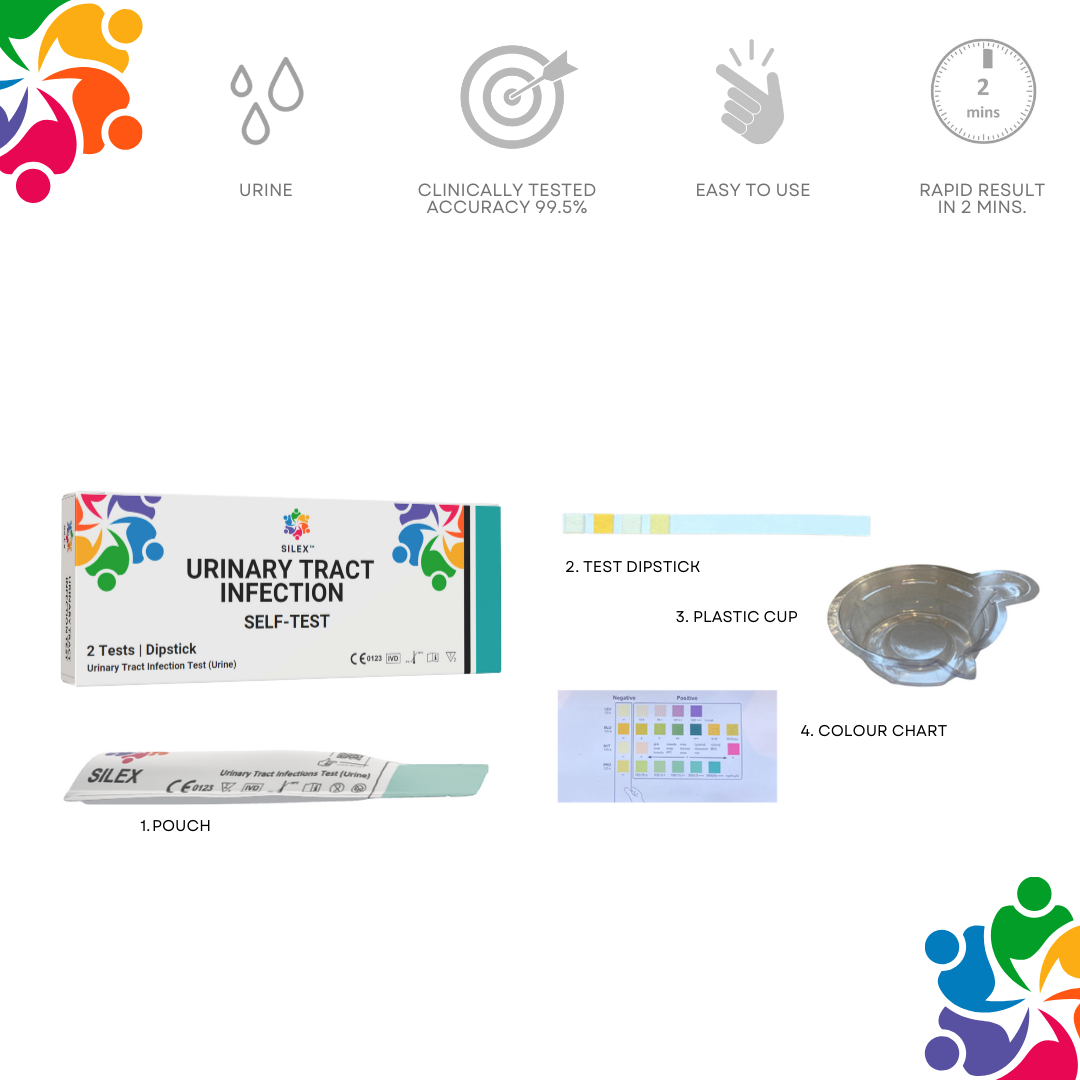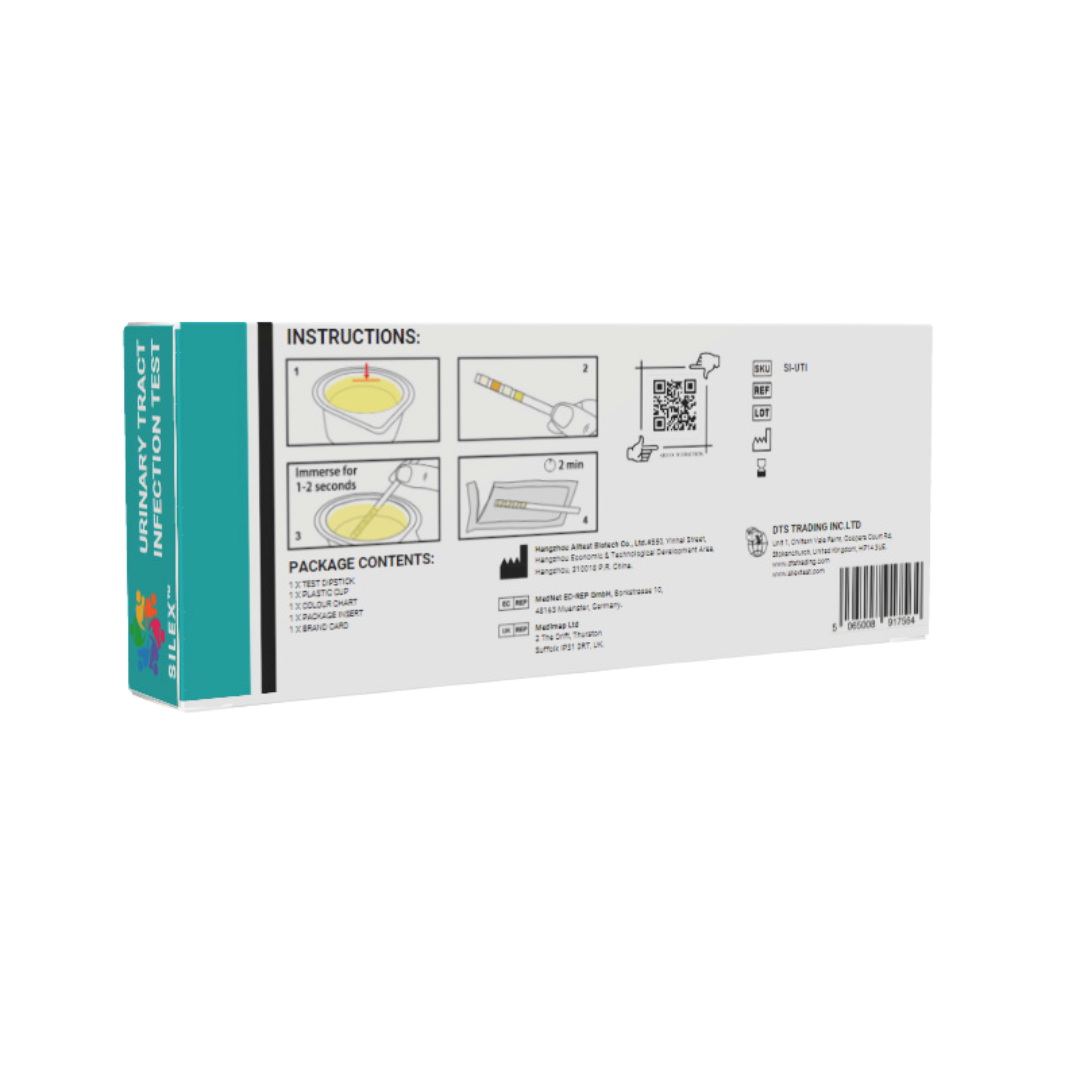Urinary Tract Infection UTI Self Test (2 Pack) – Silex
- Urinary Tract Infection Test (UTI) for the detection of leukocytes and nitrates in urine to help diagnose of a urinary tract infection.
- Easy to use.
- Rapid result in 2 minutes.
€6.25 ex VAT
Shipping 1-2 Business Days
Trading for over 25 Years
What is a urinary tract infection (UTI)?
A UTI is an infection of anywhere along the urinary tract. This includes the urethra (the tube which we
urinate out of), the bladder, the ureters (the tubes that connect the bladder to the kidneys), and the
kidneys themselves. When doctors talk about a UTI, we tend to mean an infection of the bladder, also
known as cystitis.
What is cystitis?
Cystitis is inflammation of the bladder, usually caused by a bacterial infection (although there are
other reasons why people can get an inflamed bladder).
What are the symptoms of cystitis?
Frequency (needing the toilet lots of times)
Urgency (feeling like you can’t hold your urine in)
Pain when passing urine (this can sometimes be stinging)
Foul smelling urine
Confusion in elderly people
Lower stomach pain
Blood in your urine
In older people, a urinary tract infection can cause confusion or delirium.
When should I seek medical attention?
If you are experiencing pain high up in your stomach, and around the sides of your torso. This may
indicate an infection of the kidneys, which is more serious.
If you develop a temperature or fever
If the pain is severe
If you suffer from any medical condition that reduces your ability to fight infections
How is it treated?
In most cases, cystitis can be treated with a short course of antibiotics.
Who is at risk of cystitis?
Females are much more likely to get cystitis than men. This is because the tube women urinate out of
(the urethra) is much shorter compared to men, therefore the bacteria are more likely to get into the
bladder.
Other things that can increase women’s chance of having cystitis are: pregnancy, being sexually
active, going through menopause, having diabetes, having a reduced immune system, or having a
long term catheter (a tube that goes into your bladder through which urine is collected)
What can I do to prevent cystitis?
There are some simple things you can do to improve the chances of not getting cystitis, such as
wiping from front to back, passing urine after sexual intercourse and staying well hydrated.
There is some evidence that drinking cranberry juice can help with urinary tract infections however
this is not conclusive.
What should I do if I get recurrent episodes of cystitis?
If you are female, speak with one of our doctors if you are getting two or more episodes of cystitis in
six months or three or more episodes in one year. They may want to refer you to a specialist.
If you are male, speak with one of our doctors if you test positive for cystitis. They may wish to
arrange further tests.
What happens if I leave cystitis untreated?
If cystitis is left untreated, then it can lead to a worse infection along the urinary tract. This can lead to
sepsis – a life-threatening condition that needs to be treated in a hospital.




